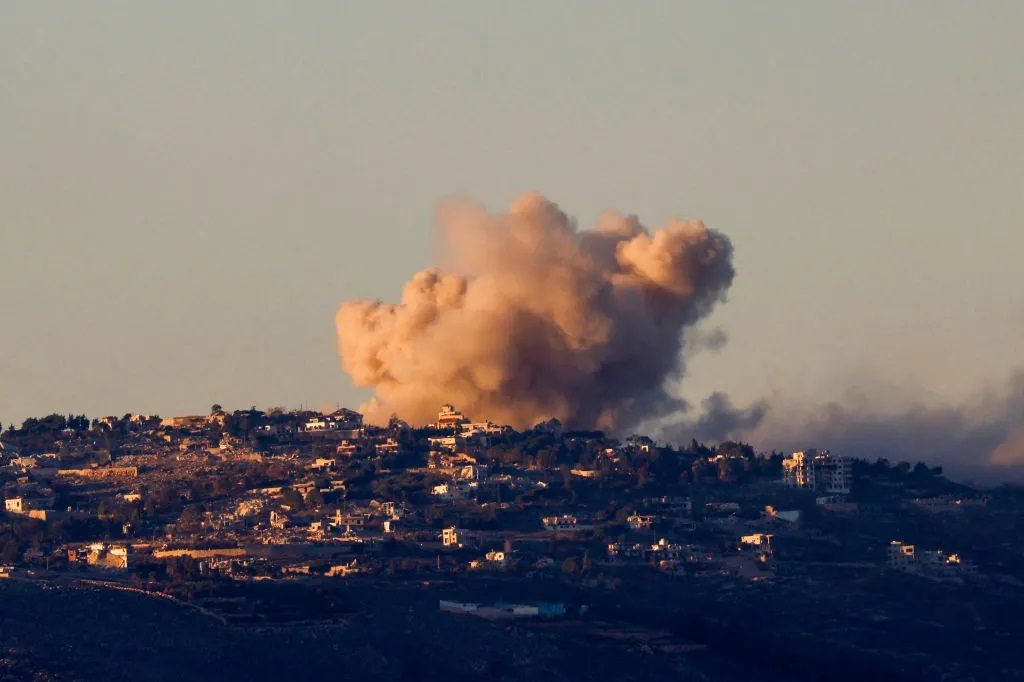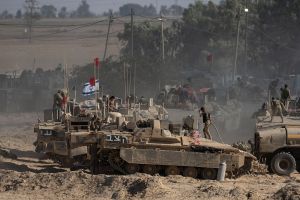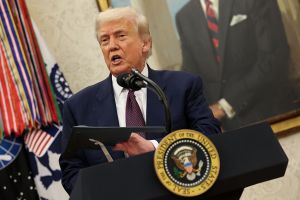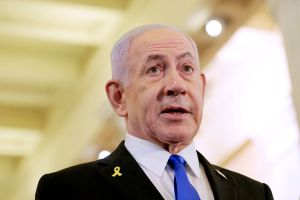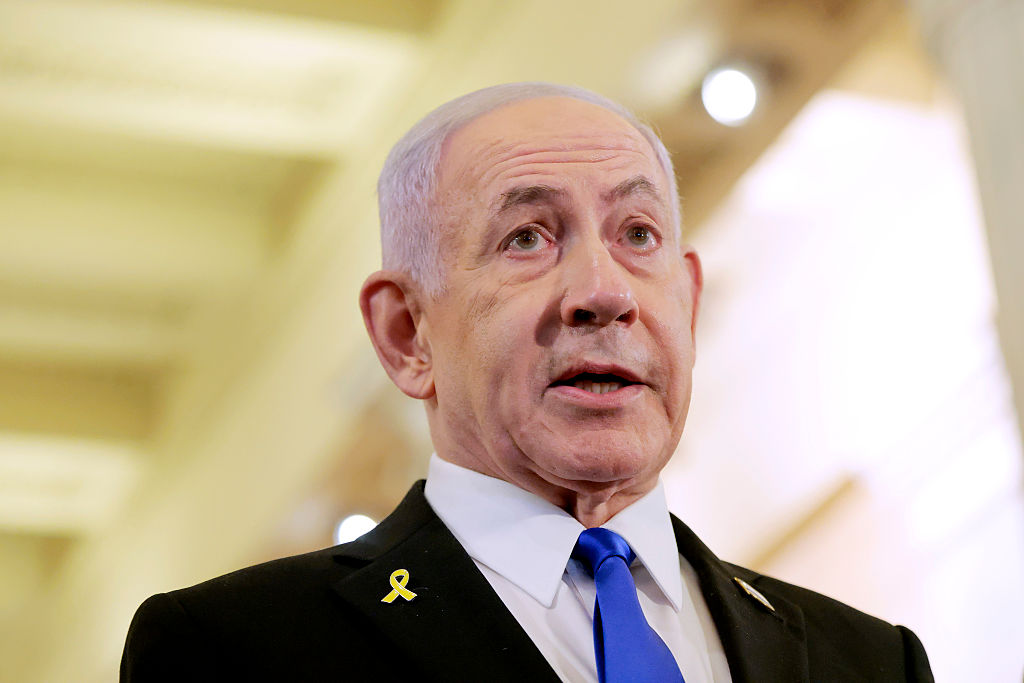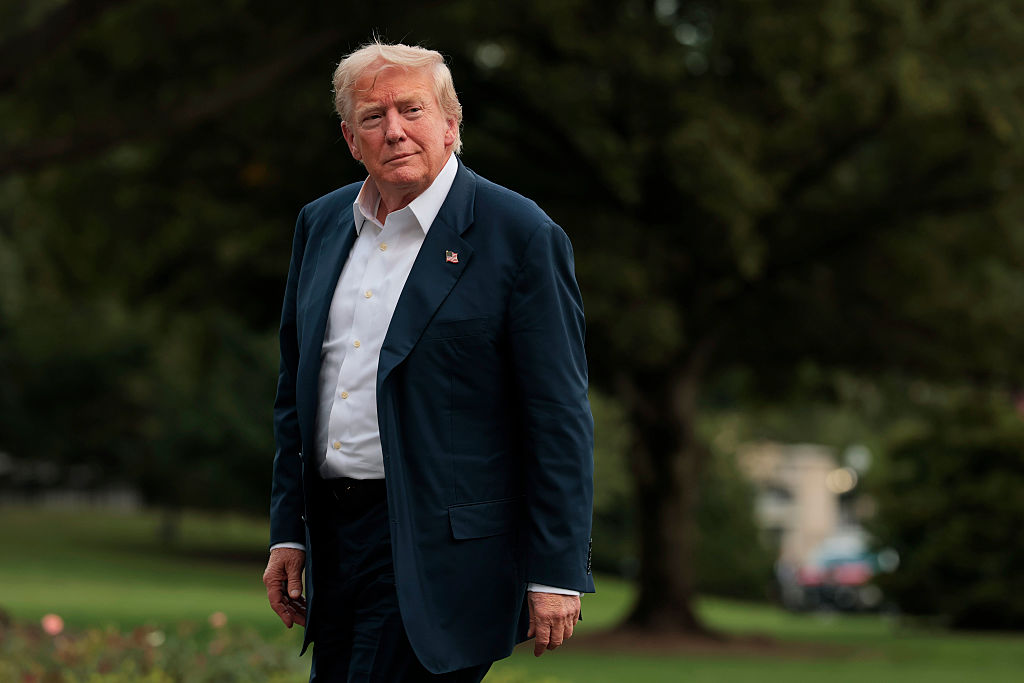Peace is apparently closer than ever in Lebanon. So expect more bloodshed.
Prime Minister Benjamin Netanyahu urged the Israeli cabinet to accept an “outline for a ceasefire” with Hezbollah on Tuesday night, raising hopes that the fighting in Lebanon could soon be suspended after more than a year of conflict.
“The length of the ceasefire will depend on what happens in Lebanon,” Netanyahu said in a televised address. “With the full understanding of the United States, we are preserving full military freedom of action — if Hezbollah breaks the agreement and seeks to arm itself, we will attack.”
On Sunday, Hezbollah sent some 250 rockets into Israel. It was one of the largest attacks since the group started firing missiles in support of Hamas more than a year ago. One local council in northern Israel announced that children would now be taught only in classrooms less than thirty seconds from a bomb shelter. The day before, Israel had dropped a massive “bunker-buster” to bring down a tower block in the heart of Beirut, reportedly targeting a senior Hezbollah commander. As many as twenty-nine people were killed, and sixty-five injured, most, if not all, civilians: it seems the Hezbollah commander was not at home.
In Gaza, Joe Biden has a bad record of announcing ceasefires, only to see the bloodshed continue and even intensify. Perhaps he was trying to bounce the parties — Hamas and Israel — into making an agreement they were close to but had not quite achieved. Or perhaps Benjamin Netanyahu was playing him for a fool, daring the Americans to cut off military aid if he didn’t stop the bombing. Either way, it was the opposite of “talk softly but carry a big stick” — a personal humiliation for Biden and an embarrassment for the United States.
In Lebanon, there has been no premature presidential announcement, just a briefing by US officials to Friday’s New York Times. The terms of the deal are said to be as follows: the Israeli military withdraws from southern Lebanon, while Hezbollah moves its heavy weapons north of the Litani River, about ten miles from the border. Hezbollah undertakes not to smuggle more weapons into Lebanon. There is a sixty-day transition period, during which the Lebanese army would move back to areas close to the border (they fled when Israeli tanks started rolling in). Monitoring of the ceasefire is led by the American military.
Several problems are immediately obvious with these arrangements. Are Hezbollah really going to accept the word of an American general as the arbiter of whether the truce has been breached? And as they try to rebuild, it will be difficult for them to resist the temptation of bringing in more weapons from Syria and Iran. It also seems unlikely, from past performance, that either the Lebanese army or the UN force in Lebanon, UNIFIL, will be capable of stopping Hezbollah from sneaking back into the border area. UNIFIL’s mission is to keep the border demilitarized — under the terms of the UN resolution that ended the 2006 war — but Hezbollah were able to build their tunnels without much trouble: the mouth of one emerged just a few yards from a UN base.
There’s another problem for the deal as leaked. Lebanon wants France to be part of the committee to monitor the ceasefire. But Netanyahu was apparently furious when France announced that it would act on the International Criminal Court’s arrest warrant for him. Biden reportedly spoke to Emmanuel Macron, telling him Netanyahu was right to be angry: it was not possible, he said, to implement a deal while also trying to arrest one of the signatories.
According to the US officials’ briefing, the ceasefire comes with a get-out clause for the Israelis, contained in a side letter. This letter apparently gives Israel assurances that the US would support military action if Hezbollah did start moving back into the border area, if weapons smuggling resumed, or if there was an “imminent threat” from Lebanese territory. Israel could take action if the Lebanese military failed to deal with the threat and after consultations with the US. The Israeli media put a rather different spin on this. One newspaper said the outgoing defense minister, Yoav Gallant, had made clear that any violation of the ceasefire would prompt Israel to “immediately” take down three buildings in Dahiyeh, Hezbollah’s stronghold in Beirut.
Stopping this campaign will be politically difficult for Netanyahu
The deal is being mediated by a US special envoy, Amos Hochstein. He has been working at it for more than a year and, according to some reports, had threatened to resign if Netanyahu did not accept the proposals. CNN quoted “a source familiar with the matter” as saying Netanyahu had finally agreed to the deal “in principle” but still had “some reservations.” This sounds very much like what happened many times in the Gaza mediation — talk of progress, hints from the Israeli prime minister, then a last-minute collapse. Netanyahu’s final decision will depend on two things: whether Israel has yet achieved its war aims in Lebanon; and domestic politics.
Israel’s military campaign against Hezbollah has been, from its point of view, a spectacular success. Despite Sunday’s barrage, Hezbollah’s missiles are no longer the threat they once were — many have been destroyed, along with the tunnels that housed them. And Israel cut a swathe through Hezbollah’s most loyal and effective cadres with its innovative pager bombs. It also killed ten of the twelve members of the group’s Jihad Council; it assassinated the charismatic leader, Hassan Nasrallah. One report says his replacement is hiding in Iran, afraid that setting foot in Lebanon will bring down another bunker-buster.
But stopping this campaign will be politically difficult for Netanyahu. His governing coalition could fall apart without the backing of ultra-nationalists, who have been waiting a long time to hit Hezbollah. They include the national security minister, Itamar Ben-Gvir, who posted on X that any ceasefire agreement would be “a big mistake — a historic missed opportunity to eradicate Hezbollah.” He wrote: “Precisely now, when Hezbollah is beaten and longs for a ceasefire, we cannot stop… We must continue until the absolute victory!”
Whether there’s a ceasefire also depends on Iran. Hezbollah was always Iran’s militia in Lebanon. With Hezbollah in such disarray, Tehran must be presumed to have put the group even more tightly under its control. You might think that Iran would want a ceasefire now, as quickly as possible, before more of Hezbollah is destroyed. That would give them a chance to preserve something of what used to be called their “strategic deterrent” against Israel. But Tehran has more than just Hezbollah’s position to consider.
Iranian officials say Iran is preparing to “respond” to Israel’s attack on it last month. That strike, which destroyed a large part of Iran’s air defenses, is part of a steady escalation. If it continues, Iran will need to use Hezbollah. And — in a separate, astonishing development — Iran has been accused of trying to assassinate Donald Trump during the presidential election campaign. If true, that was rash of the mullahs: Trump holds grudges. Will it push him to join Israel in an attack on Iran’s nuclear program, its oil facilities, or the leadership itself? If so, any ceasefire in Lebanon could be a fleeting achievement, a prelude to the wider war in the Middle East threatened ever since Hamas attacked Israel a year ago.



